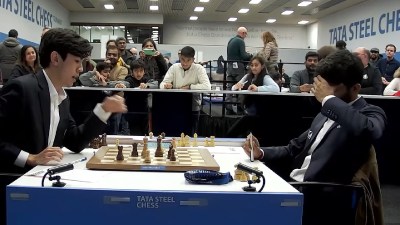Indo-Pak hyphens
8226; Apropos of Kuldip Nayar8217;s piece, 8216;Sweeping India off her ...

8226; Apropos of Kuldip Nayar8217;s piece, 8216;Sweeping India off her feet8217; IE, August 3, to be truly independent, India has to be strong, and not just morally. Military and economic strength matters the most. Why is it that those in the Independence generation always compare India with Pakistan and look for some balance between these two unequal countries? It8217;s no longer in Indian interest to be equated with Pakistan. If we accept this notion of legitimate disparity, then the logical conclusion is that we must accept that being one of the largest nations, we cannot escape our responsibilities in the world.
8212; P.K. Singh On e-mail
8226; I totally agree with the views expressed by Kuldip Nayar and there is no denying that India has lost much more than it has gained from the defence pact with the US. We have been very proud of our independent views on world affairs but now, with the new friendship with the US, we have ourselves tied our hands and I doubt if Indians will ever feel as proud as we were just a few weeks ago.
8212; Farhatullah Sharif Houston
Kashmir, evocatively
8226; Read Ananya Vajpeyi8217;s very evocative 8220;a prayer on his sleeve8221; piece on the young Kashmiris 8216;Enter, the new Kashmiris8217;, IE, August 4. At an age when I am too old to be exuberant and too young to be cynical, it does seem that only the young trust their contemporaries.
8212; Gurunandan R. Bhat On e-mail
8226; While complimenting the writer for providing us a new point of focus in the Kashmiri political space, it rankles rationalist thought. Undoubtedly her analysis of the emerging leadership in Kashmir is bang on. However where I seek to contest the author8217;s view is her running down of the role of the army. No doubt popular sentiment quite naturally would be hatred towards the army, just as the police are seen in many parts of the country. But then can we do without the police in any part of the world? Let me, short of singing a paean to the army, highlight the contribution of the army to Kashmiris and not just Kashmir as a state. Take the Razakars raid on Kashmir in 8217;47. The ravage of Kashmir then was total. By today8217;s standards, the rape of Kashmir in 8217;47 was nothing short of what happened in Rwanda. It was the timely intervention by the Indian army that saved the Kashmiri people. The next phase of the army8217;s relationship with the Kashmiri started in the 1990s when a full-scale insurgency broke in the state ruining its economy and reducing people to penury. The army came under pressure from a vast multitude of locals within who operated a hard core of terrorists with just one aim: make violence the message. Fifteen years later, after much sacrifices from both the Kashmiri people and the security forces, Kashmir is seeing an era of new hope. This has been created as much by the army as by the people of Kashmir.
8212; B.R.K. Rao On e-mail
More like Socrates
8226; It is good to note that Indian democracy has attained maturity, and the Indo-US nuclear pact between Manmohan Singh and George Bush is under thorough scrutiny 8216;Argumentative Indians8217;, August 1. But a point of caution is that the matter should be discussed, not argued. A discussion is based on reason while an argument lacks reason. Amartya Sen says Indian strength as a democracy has been its tradition of argumentation. He may be right, but we Indians mostly believe in the 8220;Socrates passtime8221; 8212; ie, say something, prove it wrong; say the opposite, prove it wrong, too.
8212; F.S.K. Barar Jodhpur
- 01
- 02
- 03
- 04
- 05






























